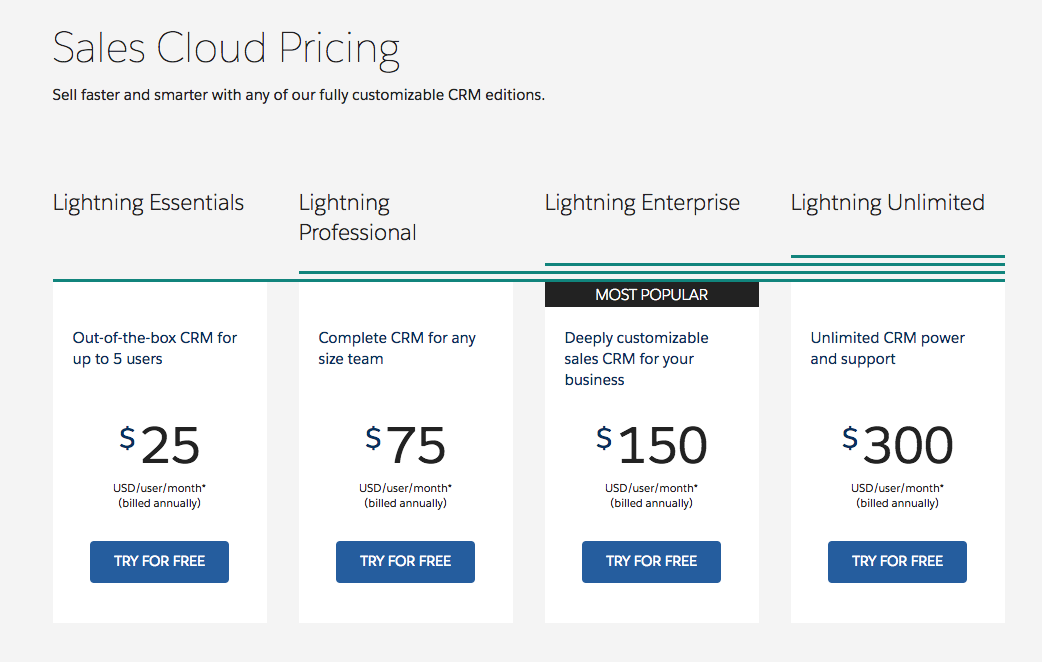SALES ENABLEMENT SOFTWARE
Sales Summit: 5 Critical 'How-To's' to Increase Sales Results for Sales Leaders
The Power of Sales Management Books: Using Sales Research to Inform Actions and Increase Revenue
“Companies fail, not due to a lack of financial capital, but rather due to a lack of intellectual capital,” says Mark Hunter during a Sales Summit at Dreamforce. He says that smart tools are creating a dumb salesforce and points to the trend for more and more people participating in sales calls. Rather than group sales calls, Hunter prefers the confident and informed sales person equipped with the correct tools and the critical thinking skills to handle sales meetings.
Hunter teaches key strategies for sales leaders to arm their teams with the ability to think critically and base actions on proven sales research and advice. It’s easy for a sales leader to tell the team what to do. The organisation has procedures, and the team has numbers to meet. It’s quite another to teach a team understand the why and how. Effective sales leaders teach their teams to improve skills by employing insights from top sales leaders. Sales training books are a resource sales leaders can use to provide proven ideas that inform sales strategies. When sales teams understand the research and reasoning behind sales strategies, the sales team’s activities become purposeful and insight-driven.
Hunter teaches that critical learning needs to take place. When sales leaders can teach their teams to use concepts from sales training and revenue management books and then teach the teams apply those teachings in practice, that learning will translate into informed action.
Powerful sales leaders and their teams understand the importance of using top industry research to inform their goals and set their actions. When sales activities align with top research and advice from sales industry leaders, increased revenue follows. When considering sales management books, sales training books, and revenue management books, Mark Hunter’s High-Profit Selling is a bestseller.
Five Critical “How-Tos” to Increase Sales Results
Hunter suggests selecting one or two goals rather than trying to change everything at once. He offers five strategies to increase sales:
- Set Clear Goals for the Right Things;
- The Discipline of Process and Time;
- Skill Growth as Part of the Plan Rather than as an Afterthought;
- Prospecting at the Correct Level; and
- Organisation that Fosters Success Versus One Overcome With Fear.
Set Clear Goals for the Right Things
Hunter’s first “How-To” is to set the right goals. Organisations will achieve dramatic increase in performance when sales and management align on goals and critical activities. Hunter says compensation should be directly connected to the organisation’s goals. Because salespeople chase compensation, they will focus their activities on the organisational goals.
Breakdown between sales and management can happen when goals and metrics aren’t clearly defined. Hunter says that just because something can be measured doesn’t mean that it should be measured, and something that is hard to measure still can be measured. Organisations should measure the activities that feed the goals, advises Hunter. He recommends stating three goals that are easy to measure, to read, and to understand. He warns against creating a situation that results in the sales team spending inordinate time dissecting the compensation plan to meet the goals. More success comes from three goals solidly met than twenty goals haphazardly pursued.
Hunter says organisations should focus goals on critical activities. Revenue and growth will absolutely follow critical activities such as customer-facing activities.
The Discipline of Process and Time
Discipling time by allowing reps to spend more customer-facing hours is Hunter’s second strategy for increasing sales.
“Organisations don’t have a time management problem,” says Hunter, “they have a priority management problem.” A typical sales professional spends the rough equivalent of two days each week in the office doing paperwork and that time must be decreased because it limits sales reps’ ability to build relationships, to ask questions, to qualify leads, and to focus on what the customer needs. Internal paperwork can be streamlined and reduced by adopting efficient CRM systems. While email is a critical tool; it isn’t part of the critical face-to-face measurement, clarifies Hunter.
“The most critical asset you have in your organisation is your salespeople’s time. Time is the only asset that is limited,” says Hunter. He explains that one of the most significant changes an organisation or a salesperson can make is to increase time spent with clients. Hunter recommends measuring time spent either on the phone or face-to-face with a client. That metric should increase every quarter and every year.
When organisations recognise the value of client-facing time, they will streamline processes and invest in tools that more efficiently manage information and get salespeople back to selling. The value isn’t merely in having Salesforce CRM solutions, but in capitalising on the best uses and analytics.
Skill Growth as Part of the Plan Rather than as an Afterthought
The third tip Hunter offers is to focus on skill growth. Many companies fail to develop their people to critically think. Good sales leaders should ask their team and themselves each day, “what did I learn today and how will I use it tomorrow?” If they aren’t professionally growing, something is wrong, stresses Hunter, who recommends teaching teams to learn every day and improve every day. Hunter emphasises the importance of allowing failure in order to foster learning and improvements. When each individual within an organisation works regularly toward personal and professional growth, they build confidence and competence within the organisation.
Engage in critical discussions early. Measure when sales managers participate in client calls and meetings. When sales managers and executives get on sales calls at the end of a quarter or at the end of the year, it makes the frontline sales rep look incompetent because the sales managers appear to try to save the day. Engage in critical discussions in the first part of the fiscal year. Build the relationship before you need it, says Hunter who advises “front-loading” management involvement and then letting the rep make the sale.
Hunter emphasises the need for sales leaders to focus on leadership. “Managers manage activities. Leaders lead people,” Hunter says. Leaders delegate responsibilities as a way to foster growth. The mark of a leader is what occurs when the leader is not there.
Ask critical questions. Only salespeople who are very confident and competent will ask questions to which neither they nor their clients know the answer. These questions enable learning and uncover opportunities. Hunter recommends basing relationship on the opportunity for growth and suggests building relationships with more people in the client company depending on the potential for sales growth. The ability to ask critical questions shows customers that the sales representative is a trusted advisor rather than someone looking for a quick sale.
Prospecting at the Correct Level
Hunter’s fourth tip is to prospect efficiently. Hunter makes a critical distinction between activity and prospecting, asking organisations to consider if they’re passing off activity as prospecting. A meeting or a lead does not always generate a sale, explains Hunter, so don't spend time spending time. Instead prospect better, says Hunter. Everybody wants to find more customers and prospect qualification is a key activity in any organisation. Hunter explains that not all prospecting yields sales so learn to distinguish profitable prospecting practices.
Examine the pipeline and identify whether it includes prospects or suspects, says Hunter. He offers four measurements to determine the quality and potential of a prospect. First, be sure to build relationships with decision makers. Second, understand a minimum of two critical needs; a client that trusts a sales rep shares proprietary information. Third, identify the timeline for making a decision. Regardless of the rapport built with a customer, if a decision won’t be made within the year, there is no prospect for a sale. Fourth, quantify the customer's value of money. Hunter says that many salespeople are trying to get Nordstrom customers from Wal Mart prospects.
Hunter sets the objective for salespeople is to spend more time with fewer prospects. Each salesperson should quickly validate which prospects may lead to a sale, and then spend time with the right prospects.
Organisation that Fosters Success Versus One Overcome With Fear
His fifth “How-To” is to fostering your organisation to achieve success by taking away the fear of failure. According to Hunter, “When we change our outlook on life, we’ll change our output from life.” He recommends organisations shift their culture to create an atmosphere where people can fail. He doesn’t say that failure is the goal, but that failure should be an option. An organisation primed to succeed allows people to make mistakes without jeopardizing their success or their job.
Unfortunately, within many organisations, Hunter says, there is more likelihood that people lack confidence and are motivated by fear. He frequently asks sales leaders, “Are you willing to let a sale go by in the interest of developing a salesperson?” Companies committed to fostering success will reply that yes, they are willing to let the sale go if it means the salesperson’s learning and future ability will increase. The benefit of developing a sales force that can think critically outweighs a lost sale. Hunter urges sales managers and sales leaders to allow reps to take risks, to learn, and to make mistakes.
Sales Leadership
Hunter advocates developing sales leadership at every level. “Sales is leadership and leadership is sales,” says Hunter. He invites even frontline reps to see themselves as sales leaders because they are part of the entire team’s achievement and outcome. Hunter defines sales leadership in action as passion and commitment built on a foundation of integrity. Integrity, says Hunter, is something that takes a lifetime to create and a moment to lose.
Managers can’t actually motivate people; the best they can do is create an environment where people can motivate themselves. Regarding both sales and leadership, Hunter says, “The success you have today is based on your ability to help people see and achieve things that they did not think were possible.”
Recommended Reading
Critical learning happens when sales professionals can take concepts and translate them into actions. Below is a list of sales management books, sales training books, and revenue management books to add critical insight into sales practice:
- High-Profit Selling: Win the Sale Without Compromising on Price by Mark Hunter
- The Sales Development Playbook: Build Repeatable Pipeline and Accelerate Growth with Inside Sales by Trish Bertuzzi
- Snap Selling: Speed Up Sales and Win More Business with Today’s Frazzled Customers by Jill Konrath
- Jill Rowley on #SocialSelling: 140 Tweets on Modern Selling the Social Way by Jill Rowley
- The Challenger Customer: Selling to the Hidden Influencer Who Can Multiply Your Results by Brent Adamson, Matthew Dixon, Pat Spenner, and Nick Tolman
- Cracking the Sales Management Code by Jason Jordan
- Solve for the Customer: Using Customer Science to Build Stronger Relationships and Improve Business Results by Denis Pombriant
- Disrupting Digital Business: Create an Authentic Experience in the Peer-to-Peer Economy by R “Ray” Wang
- CRM at the Speed of Light by Paul Greenberg



